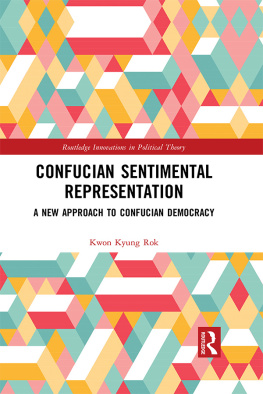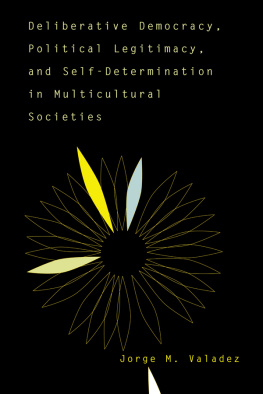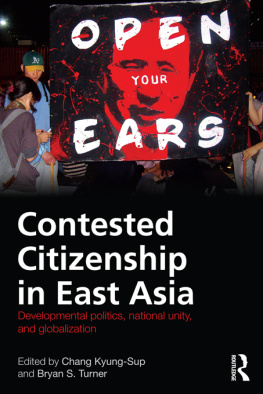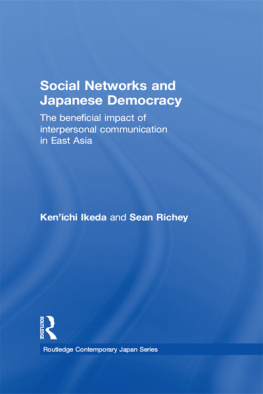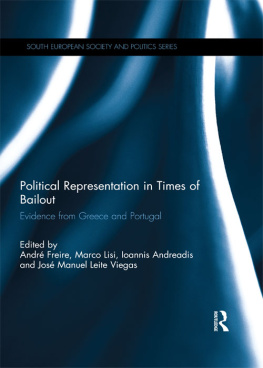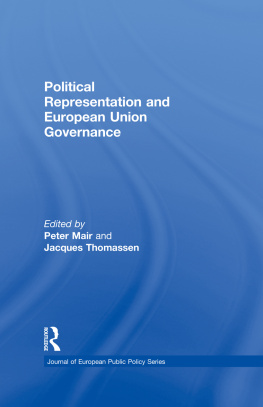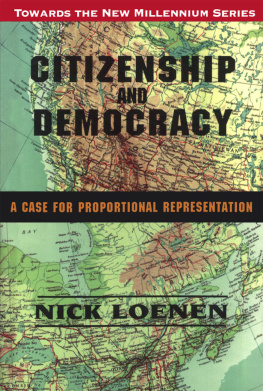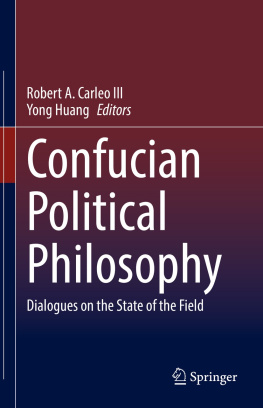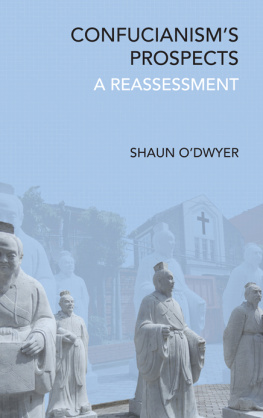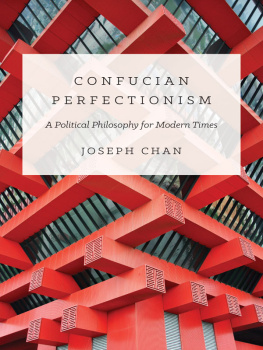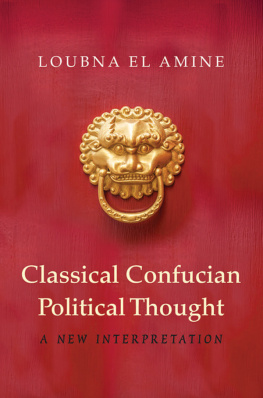Confucian Sentimental Representation
Kwon conceptualizes a unique mode of political representation in East Asian society, which derives its moral foundation from Confucian virtue politics.
Contemporary East Asian societies understand democracy differently than Western societies do. Even citizens in consolidated democracies such as Taiwan and South Korea have different conceptions of an ideal relationship between a political leader and ordinary citizens, as well as a political leaders accountability and political legitimacy. A political leaders proper conduct, including his/her everyday languages, behaviors, and expressions when facing citizens sorrow, anger, and resentment, plays a crucial role in evaluating whether his/her has political legitimacy in East Asian society. Kwon analyses how this affective accountability forms the basis for political representation in these societies and examines how this can be reconciled with liberal democracy.
A vital contribution not only to Confucian political theory, but also to political theory writ large that will be of especial value to political scientists with an interest in East Asian democracy.
Kyung Rok Kwon is a postdoctoral fellow of Research Center for Humanities and Social Sciences at Academia Sinica (Taiwan). He received his Ph.D. in Department of Public Policy from City University of Hong Kong. His main research interests include comparative political theory (East and West), Confucian political theory, and democratic theory.
Routledge Innovations in Political Theory
Legislative Deliberative Democracy
Debating Acts Restricting Freedom of Speech during War
Avichai Levit
The Legitimacy of Modern Democracy
A Study on the Political Thought of Max Weber, Carl Schmitt and Hans Kelsen
Pedro T. Magalhes
Eric Voegelins Political Readings
From the Ancient Greeks to Modern Times
Edited by Bernat Torres & Josep Monserrat
Liberal Progressivism
Politics and Class in the Age of Neoliberalism and Climate Change
Gordon Hak
Love and Politics
Persistent Human Desires as a Foundation for Liberation
Jeffery L. Nicholas
Utilitarianism in the Early American Republic
James E. Crimmins
Confucian Sentimental Representation
A New Approach to Confucian Democracy
Kyung Rok Kwon
The Ideology of Political Reactionaries
Richard Shorten
For more information about this series, please visit: https://www.routledge.com/Routledge-Innovations-in-Political-Theory/bookseries/IPT
First published 2022
by Routledge
2 Park Square, Milton Park, Abingdon, Oxon OX14 4RN
and by Routledge
605 Third Avenue, New York, NY 10158
Routledge is an imprint of the Taylor & Francis Group, an informa business
2022 Kyung Rok Kwon
The right of Kyung Rok Kwon to be identified as author of this work has been asserted in accordance with sections 77 and 78 of the Copyright, Designs and Patents Act 1988.
All rights reserved. No part of this book may be reprinted or reproduced or utilised in any form or by any electronic, mechanical, or other means, now known or hereafter invented, including photocopying and recording, or in any information storage or retrieval system, without permission in writing from the publishers.
Trademark notice: Product or corporate names may be trademarks or registered trademarks, and are used only for identification and explanation without intent to infringe.
British Library Cataloguing-in-Publication Data
A catalogue record for this book is available from the British Library
Library of Congress Cataloging-in-Publication Data
A catalog record has been requested for this book
ISBN: 978-0-367-67747-3 (hbk)
ISBN: 978-0-367-67748-0 (pbk)
ISBN: 978-1-003-13266-0 (ebk)
DOI: 10.4324/9781003132660
This book is based on my doctoral dissertation. In writing this book, I have incurred numerous debts. First of all, I greatly thank Sungmoon Kim, who was my supervisor and academic mentor. Without numerous discussions with him about critical issues in political theory, his constructive feedbacks, and warm encouragement, I would not have been able to finish this book. I am grateful to Philip J. Ivanhoe and Eirik Lang Harris for extensive written and verbal comments on the earliest version of this book. I am also thankful to my dissertation board members, Joseph Chan, Ruiping Fan, and William Smith. They provided me with critical and insightful comments, constructive suggestions, and friendly encouragement. The core idea of this book was presented at First Oxford symposium on comparative political philosophy held on July 1012, 2019 at the University of Oxford. In the symposium, Baldwin Wong, Elton Chan, Larry Lai, Wenqing Zhao, Ranjoo Herr, Franz Mang, Stephen Angle, and Roy Tseng offered me valuable comments and suggestions on my formulation of Confucian sentimental representation. I thank all of them. Two research centersCenter for East Asian and Comparative Philosophy at City University of Hong Kong and Research Center for Humanities and Social Science at Academia Sinica (Taiwan)provided me with a lot of support for my research. I also thank them for their support. I would like to thank Simon Bates, my editor at Routledge, for accepting this project and the three anonymous reviewers for their critical suggestions. My journal article Toward Confucian democratic meritocracy in Philosophy & Social Criticism 46:9 (Nov.): 10531075 is incorporated into this book. I also thank SAGE journals for permission to reprint parts of the article in this book.
Lastly, I would like to express my gratitude toward my family. Since I started my studies, my parents and parents-in-law have given me a lot of support. Without their love and sacrifice, I would not have been able to finish my book. I would also like to thank my two lovely daughters, Minsung and Gahyun, who are a great source of our familys happiness, and my wife, Eunhae, who has had faith in me and supported my studies for a long time. Without her sincere concern, patience, and love, I would not have been able to arrive at this moment. I dedicate this book to her.
DOI: 10.4324/9781003132660-1
Political Representation in East Asian society
Although there has been controversy over the genuine meaning of democracy and ways of realizing it among political theorists, it seems clear that democracy is universally regarded as the most ideal and favored political system by a large majority of the citizenry in East Asia. One distinctive feature of contemporary East Asian societies is that, notwithstanding their strong support for democracy as the best form of government, they understand democracy differently than Western societies do.
What is intriguing is that although the authoritarian-style government based on paternalism is less supported in democratic societies such as South Korea (hereafter Korea) and Taiwan, 75.0 percent of Taiwanese citizens and 56.1 percent of Korean citizens responded that the relationship between the government and the people should be like that between parents and children. In addition, 32.8 percent of Taiwanese citizens and 62.3 percent of Korean citizens positively responded to the statement as follows: if we have political leaders who are morally upright, we can let them decide everything (Shin ). From these empirical findings, we can infer that even citizens in democratic society under the process of democratic consolidation such as Taiwan or Korea still have distinctively Confucian conceptions of a political relationship between a political leader and ordinary citizens, as well as a political leaders accountability and political legitimacy, which together give rise to a different mode of political representation.

